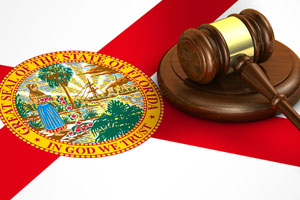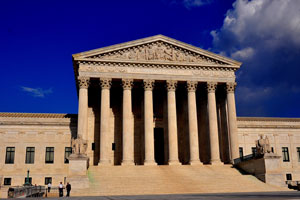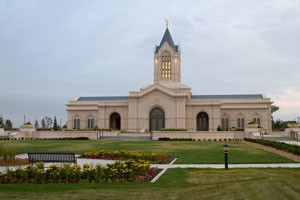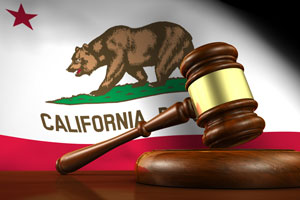Google makes a record of all searches that site visitors conduct. A federal law makes those records available to prosecutors but not to the individuals being prosecuted. To assist his defense, the attorney for Thomas Bray made repeated attempts to obtain records of Google searches conducted by Bray’s accuser. In opposition to that request, the prosecution called a police officer as an expert witness. The officer testified that Google did not have the requested records. That testimony was incorrect.
On appeal from Bray’s conviction, the Oregon Court of Appeals characterized the prosecution’s tactics, including the police officer’s “expert” opinion, as “seriously disturbing.” The appellate court decided that the trial court should have granted Bray’s request to have an independent forensic expert search the computer for evidence of Google searches.
Bray’s Prosecution
Thomas Bray was an anesthesiologist. He met a woman (identified in the court decision as “J”) through an internet dating site. They had drinks together and then went to Bray’s apartment. J subsequently accused Bray of sexually assaulting her.
When J arrived home, she sent a text to a friend that said “I think he raped me last night.” She testified that she then conducted internet searches to learn the definition of rape under Oregon law. After completing that research, J called the police and Bray was arrested.
Bray’s lawyer theorized that J searched the internet for evidence of Bray’s wealth before deciding whether it would be profitable to make a false sexual assault claim, followed by a lawsuit. J did, in fact, file a lawsuit against Bray. Bray’s lawyer attempted to obtain J’s search history from Google to determine the content of her searches, but Google refused to honor his subpoena because federal law prohibits the disclosure of electronically stored information.
The federal law contains an exception that allows disclosure to law enforcement agencies. Bray’s attorney asked the court to order the prosecutor to request the search information and to make it available to the defense. The court did so.
The Prosecution’s Expert Testimony
The prosecution took a series of steps to resist the court’s order, none of which were successful. At one point, it claimed that obtaining J’s IP address would be “impractical and expensive,” even though the prosecution already had her IP address. After the court repeatedly ordered the prosecution to request the Google records, the prosecution told the court that it had not tried to do so because it learned that making the request would be “futile.”
To explain its noncompliance with the court order, the prosecution called an officer from the Bend Police Department to testify as an expert witness. The officer told the court that Google did not maintain records of searches for more than 28 days. The officer admitted during cross-examination that he did not base that opinion on anything he learned from Google, but said he heard about the policy by talking to another police officer who claimed to have learned about it from one of Google’s attorneys. The officer did not know the attorney’s name.
During a recess in the hearing, Bray’s attorney searched Google’s website and discovered that it retains search information for 9 months. The judge then chastised the prosecution for offering inaccurate expert testimony and for its deliberate disobedience of the court order. The judge ordered the prosecution to subpoena the data from Google and threatened to hold the district attorney in contempt for the prosecution’s willful circumvention of the court’s discovery order.
Three months after the court first ordered the prosecution to serve Google with a subpoena, the prosecution finally did so. It later advised the court that Google would not release the information without a search warrant. The court eventually concluded that it did not have the power to order the prosecution to apply for a search warrant.
Request for Defense Expert
The defense then subpoenaed J’s computer and asked the court to enter an order turning the computer over to an independent forensic expert who would determine (1) whether the content of the Google searches could be found on the computer and (2) whether and when J erased the hard drive, as she claimed to have done. The trial court refused to do so after ruling that having a forensic expert search J’s computer for evidence of Bray’s innocence would violate J’s right to privacy.
Bray went to trial without the Google information. He was convicted and sentenced to 300 months in prison. Bray appealed.
The Police Officer’s Expert Testimony
The Oregon Court of Appeals lambasted the prosecution for its efforts to resist the court’s discovery order. The court found that the prosecution’s conduct, including reliance on an “expert” who based an opinion on hearsay that he made no attempt to verify, was “seriously disturbing.” The court characterized the prosecution’s defiance of the court’s order as “nothing short of an attack on the judicial system itself.”
The court nevertheless declined to reverse Bray’s conviction due to prosecutorial misconduct because Google would not have provided the records in response to a subpoena even if the prosecution had more promptly obeyed the court’s order. The misconduct was therefore dreadful but not harmful.
The Defense Request for an Independent Expert
On the other hand, the Court of Appeals rejected the prosecution’s argument that J had a statutory right to privacy that was superior to Bray’s constitutional right to compel the production of evidence in his trial. The right to compel the production of relevant evidence is protected by the Sixth Amendment to the United States Constitution. That right overcame any right J may have had to keep the contents of her hard drive a secret.
The court noted that the prosecution’s argument would have greater force if Bray simply wanted the authority to read everything on J’s hard drive. By asking that the hard drive be given to a forensic computer expert who would determine whether the hard drive contained relevant material (and, if the contents were erased, the date on which that happened), the defense took care to protect J’s privacy rights.
The trial court expressed concern that J’s privacy would be invaded because “the forensic guy” would theoretically be able to access everything on her computer. The court of appeals did not share that concern. The appellate court assumed that a forensic expert would obey the trial court’s order and would only search the computer for evidence of Google searches within a specified time frame. Any intrusion into J’s privacy would therefore have been minimal. In addition, the defense agreed to let the court choose the expert to obviate any fear that the expert might give the defense greater access to the data than the court permitted.
In short, the request to have an independent forensic expert conduct a limited search of J’s computer was reasonable. Because the trial judge denied that request without applying appropriate legal standards, Bray’s conviction was vacated and the case was returned to the trial court to appoint an expert and to decide whether a review of the material discovered by the expert would be appropriate.













